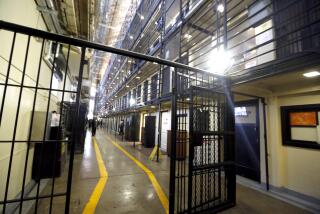China mulls eliminating death penalty for illegal fundraising, pimping

Criminal code changes being discussed by Chinese lawmakers this week could in future spare the lives of white-collar offenders like Zeng Chengjie, a businessman often referred to as “China’s Bernie Madoff” who was executed in July last year.
The death penalty is expected to be eliminated for nine crimes -- including illegal fundraising, weapons smuggling, currency counterfeiting and the operation of prostitution rings -- after a committee of China’s National People’s Congress completes its discussion of the proposed revisions, the official New China News Agency reported Monday.
Zeng was convicted in 2011 of illegal fundraising and financial fraud charges and sentenced to death. Although his family’s appeal to the government to spare his life won wide support on Chinese social media, Zeng was executed by firing squad in Changsha, in the southeastern province of Hunan, without his family being notified.
Wu Ying, also convicted financial fraud and who was sentenced to death in 2009, was luckier. After her father traveled to Beijing numerous times and held news conferences backed by lawyers, China’s Supreme Court sent the case back to the highest court in Zhejiang province for resentencing in 2012. She eventually won a reprieve.
According to the human rights group Amnesty International, China executes more people each year than the rest of the world combined and treats data on the death penalty as a state secret. The Dui Hua Foundation, a San Francisco-based group that works to free political prisoners in China, estimated in a report last week that the country executed about 2,400 people in 2013, down 20% from the previous year.
With its heavy use of capital punishment drawing heated criticism abroad, China has been working to improve its image in recent years. In 2007, a rule was introduced requiring that all death penalty cases be reviewed by the Supreme Court in Beijing before executions were carried out.
A 2011 amendment to China’s criminal code reduced the number of offenses subject to capital punishment from 68 to 55. If this week’s proposed revisions are finalized, the number would drop to 46.
Chinese lawyers welcome the move away from capital punishment.
“We have already felt that offenders in economic crimes should not face the death penalty,” said Zhang Yanfeng, a lawyer based in Beijing who represented Wu in her appeal against the death sentence.
But Zhang said Chinese officials have been hesitant to make the change because major fraud cases can generate significant public anger, and they don’t want to be seen as failing to severely punish such offenders.
“In a financial fraud case, victims usually are ordinary people who might want to seek harsh punishment for the person who cheated them,” Zhang said.
China is unlikely to abolish capital punishment entirely in the near future, he said, explaining that most people would find it hard to accept a decision to spare someone who committed a deadly attack from the death penalty.
“There’s a Chinese saying that goes like, ‘If you kill someone, you need to repay the debt with your life,’” Zhang said.
In particular, those accused of terrorist attacks that have killed many people are unlikely to win much sympathy from the Chinese public.
In August, eight people were executed on terrorism charges, including three accused of masterminding a deadly car bombing in Beijing’s Tiananmen Square last October.
Tommy Yang in The Times’ Beijing bureau contributed to this report.
More to Read
Start your day right
Sign up for Essential California for news, features and recommendations from the L.A. Times and beyond in your inbox six days a week.
You may occasionally receive promotional content from the Los Angeles Times.






